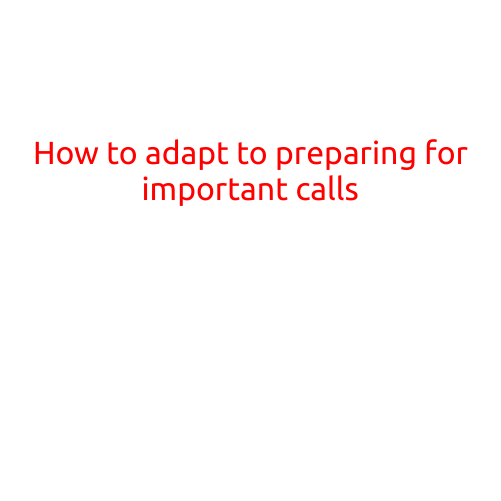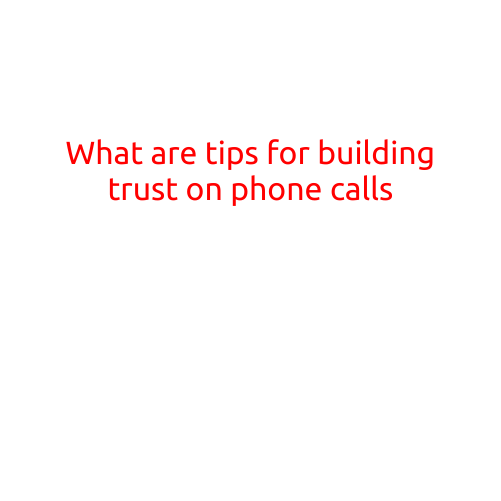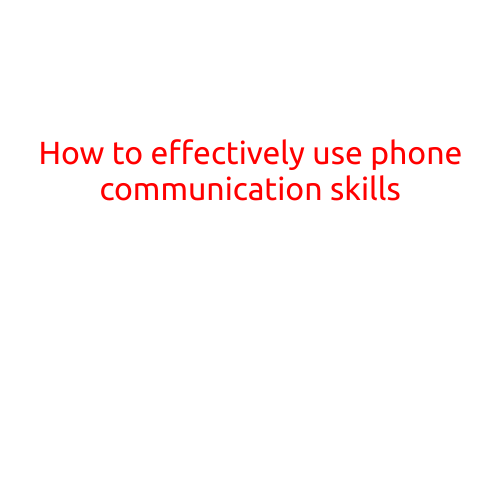
How to Develop Being Persuasive on Phone: Tips and Strategies
In today’s digital age, phone calls are an essential tool for personal and professional communications. Being able to communicate effectively over the phone is crucial for building relationships, closing deals, and achieving business goals. However, many of us struggle with making persuasive phone calls, which can lead to missed opportunities and unfulfilled potential.
In this article, we’ll share tips and strategies to help you develop your persuasive phone skills and turn your conversations into successful outcomes.
Understand Your Audience
Before making a persuasive phone call, it’s essential to understand your audience. Research the person you’re calling, their background, interests, and needs. This information will help you tailor your approach and tailor your message to resonate with them.
Prepare Your Pitch
A good persuasive phone call starts with a clear and concise pitch. Identify your key message, the benefits you’re offering, and the value it brings to the other party. Practice your pitch to ensure you can deliver it confidently and clearly.
Start with a Strong Opening
Your opening sentence or question sets the tone for the entire conversation. Make sure it’s attention-grabbing, relevant, and respectful. Instead of launching into a long speech, ask a question that encourages the other party to share their thoughts and opinions.
Active Listening
Active listening is a critical component of persuasive phone calls. Pay attention to what the other party is saying, both verbally and non-verbally. Show that you’re interested and engaged by asking follow-up questions and acknowledging their concerns.
Use storytelling
Storytelling is a powerful way to connect with others and convey complex ideas more effectively. Share relevant stories or examples that illustrate your point and help the other party visualize the benefits of your message.
Use Positive Language
Positive language is contagious and can greatly enhance your persuasive powers. Use words and phrases that convey confidence, enthusiasm, and optimism. Avoid negative language or criticism, which can be off-putting and undermine your credibility.
Acknowledge Objections
Anticipate objections and be prepared to address them promptly. Acknowledge the other party’s concerns and provide reassurance or additional information to alleviate their fears.
Be Clear and Concise
Clarity and brevity are essential when making persuasive phone calls. Avoid using jargon or technical terms that may confuse the other party. Keep your sentences short and to the point, and avoid rambling or repeating yourself.
Use Psychology
Understanding psychological triggers and persuasion techniques can help you make more effective phone calls. Use phrases that create a sense of urgency, scarcity, or exclusivity to motivate the other party to take action.
Practice and Rehearse
Finally, practice and rehearse your persuasive phone calling skills. Role-play different scenarios, practice your pitch, and work on your tone and delivery. The more comfortable you are with the process, the more confident and effective you’ll be.
Conclusion
Developing your persuasive phone skills takes time, effort, and practice. By understanding your audience, preparing your pitch, and using storytelling, positive language, and acknowledgment of objections, you can turn your conversations into successful outcomes. Remember to be clear, concise, and positive, and to understand the psychology behind persuasion. With these tips and strategies, you’ll be well on your way to becoming a persuasive phone master.





